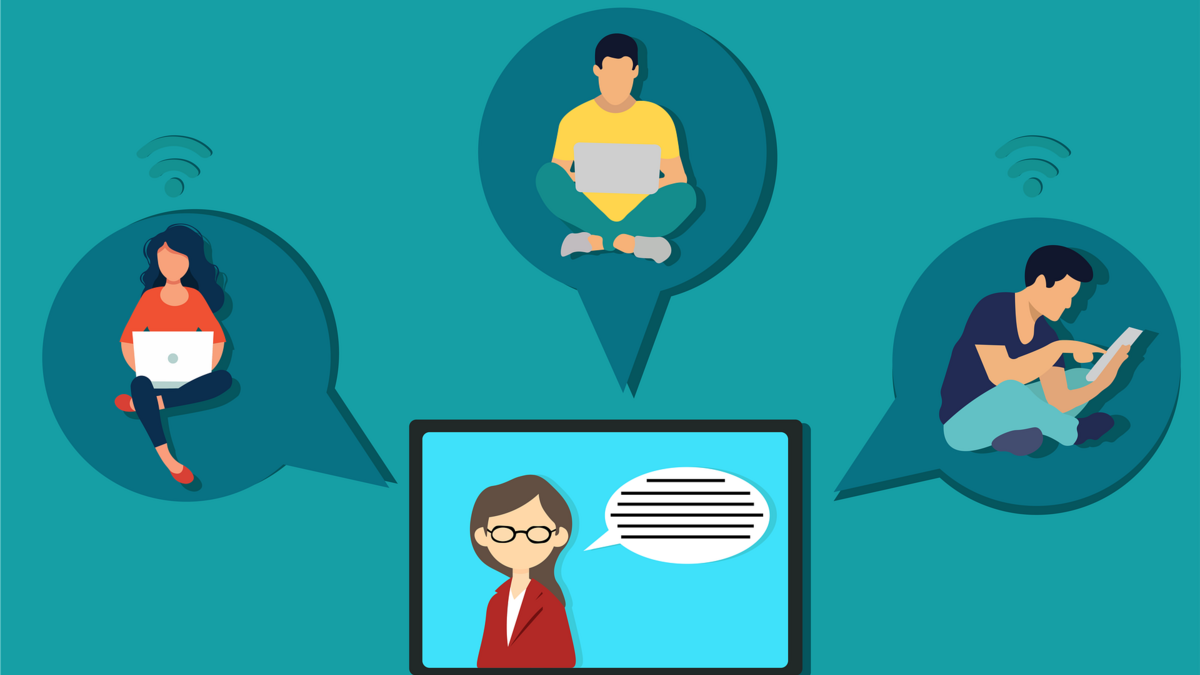This fall, the U.S. Department of Education released its latest report card on the state of learning, showing large declines in fourth and eighth grade math and reading scores between 2019 to 2022, while COVID-19 pandemic protocols were in place.
With a quick pivot to online learning at the height of the pandemic, analyzing the impacts of learning loss, and how to reverse it, has been a major area of focus for Sang-Pil Han, an associate professor of information systems in the W. P. Carey School of Business at Arizona State University, whose research focuses on artificial intelligence, digital platforms and educational technologies.
In a new interdisciplinary paper, Han and his co-authors detail their research using QANDA, an AI-based learning app by Mathpresso Inc. Han, who is an advisor for Mathpresso, and his colleagues, found that AI learning apps like QANDA can help close the learning loss gap for K–12 students, especially if there’s an immediate goal, like taking a college placement exam.
But as Han points out, the pandemic will not be the only disruption in education going forward. Yes, the world may have to brace for another pandemic, but there’s also the reality of climate disasters, wherein classes could be canceled for, let’s say, a hurricane, like families in Florida recently experienced with Hurricane Ian.
Then, there’s equity in education. Han explains why AI-powered learning apps serve students more broadly, and how they can deliver for businesses too.
Question: Why are AI-based apps more effective at closing the learning loss gap than, let's say, a tutor?
Answer: AI-based learning apps provide student-tailored educational content at an affordable price, with a few screen touches from their comfortable locations, without interruptions, at their own pace, 24 hours a day, 7 days a week, as long as students have internet connectivity. In this regard, the benefits of AI-powered learning apps can be summarized in five aspects: 1) affordability (cost-saving), 2) actionability (less time/effort required), 3) accommodability (personalized experience), 4) assurance (reliability and consistency in service) and 5) accessibility (greater reach to educational resources).
In addition to the aforementioned five "A's," from an efficacy and experiential perspective, for certain segments of students, AI-based learning apps are more effective. For example, Gen Z's simply learn not only more effectively but also (more enjoyably) when they interact with AI technology. Especially for resource-strapped students who cannot afford personal tutors or who live in remote locations where accessibility to tutors or test-prep institutions are limited, AI-based learning apps are essential in the sense (that they) close the existing learning app.
Q: Does this research suggest that AI-based apps will be essential to everyday learning, regardless of whether we are in a pandemic?
A: Yes, we see this at ASU and at other universities. The pandemic has been an inflection point that has accelerated and shaped the landscape of many industries, including the education sector, not only in hybrid working but also in hybrid learning.
Q: The pandemic won’t be the last disruptor in education. How can this technology aid students and industry alike?
A: Global pandemics and natural disasters derail students’ learning paths and lead to dire economic and social consequences. Our research shows that AI-powered learning apps can play a pivotal role in mitigating learning loss under such adverse conditions. Our study provides implications for businesses as well as to policymakers and administrators. For investors, investment in edtech firms will help achieve the double bottom line of financial and social objectives. For policymakers and administrators, AI should be given serious consideration as the next frontier in leveling the playing field by advancing equity in education.
Top photo courtesy Pixabay
More Arts, humanities and education

ASU’s Humanities Institute announces 2024 book award winner
Arizona State University’s Humanities Institute (HI) has announced “The Long Land War: The Global Struggle for Occupancy Rights” (Yale University Press, 2022) by Jo Guldi as the 2024…

Retired admiral who spent decades in public service pursuing a degree in social work at ASU
Editor’s note: This story is part of coverage of ASU’s annual Salute to Service.Cari Thomas wore the uniform of the U.S. Coast Guard for 36 years, protecting and saving lives, serving on ships and…

Finding strength in tradition
Growing up in urban environments presents unique struggles for American Indian families. In these crowded and hectic spaces, cultural traditions can feel distant, and long-held community ties may be…
